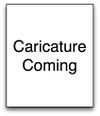Difference between revisions of "Robert McDowell"
| Line 27: | Line 27: | ||
==Stand on Internet Issues== | ==Stand on Internet Issues== | ||
===Internet Governance=== | ===Internet Governance=== | ||
| − | On February 2012, Commissioner McDowell published a statement condemning the proposal of Russia, China its allies create an "international control" over the internet through the International Telecommunications Union ([[ITU]]). He strongly pointed out that the existing [[Multistakeholder Model|multistakeholder governance model]] | + | On February 2012, Commissioner McDowell published a statement condemning the proposal of Russia, China its allies create an "international control" over the internet through the International Telecommunications Union ([[ITU]]). He strongly pointed out that the existing [[Multistakeholder Model|multistakeholder governance model]], which is a consensus-driven private-sector approach has been the key to the phenomenal success of the internet. According to him, an intergovernmental control over the internet will prevent innovation, growth, national sovereignty and global free trade and expansion of cross border technology. He encouraged all advocates of internet freedom and prosperity in countries worldwide to engage in a more effective strategy-a dialogue with all interested parties including governments and the ITU. The goal is to '''"broaden the multi-stakeholder umbrella with the goal of reaching consensus to address reasonable concerns."''' He also reminded the U.S. government to act and select a representative to the treaty negotiation.<ref>[http://online.wsj.com/article/SB10001424052970204792404577229074023195322.html?mod=WSJ_hps_sections_opinion The U.N. Threat to Internet Freedom]</ref> |
==References== | ==References== | ||
Revision as of 07:48, 11 April 2012
| Country: | USA |
Robert McDowell is a Commissioner of the Federal Communications Commission (FCC). He started serving the FCC as a Commissioner since 2006 when former President George W. Bush appointed him. He was re-appointed by President Barack Obama and the Senate unanimously confirmed his appointment in 2009. As Commissioner, his priority is ensure competition and innovation within the communications sectors and companies provide more choices and lower prices for consumers.[1] He is involved in the development and implementation of policies and regulation for the internet, radio and television industry. His term as Commissioner will expire in 2014.
Personal Life
Commissioner McDowell's parents were the late Hobart McDowell, Jr., an author and senior editor of the National Geographic and late Martha Louise Shea McDowell, a public relations executive of the Washington Post. He lives in the same farm where he grew up in Fairfax County, Virginia with his wife Jennifer and their three children.[2]
Education
He received his BA from Duke University and his JD from the Marshall-Wythe School of Law at the College of William and Mary.
Career History
McDowell started his career as chief legislative assistant of Virginia House of Delegates Robert T. Andrews after graduating college from Duke University. In 1990, he joined the Washington offices of Arter & Hadden, a Cleveland-based law firm after receiving his degree in law. He left the law firm after three and became Senior Vice-president and General Counsel the of America's Carriers Telecommunications Association (ACTA), a communications service trade organization. He served as vice president of Competitive Telecommunications Association (CompTel) when ACTA merged with the company in 1999. As vice president of the company, he strongly advocated and lobbied the different telecommunication issues to the Congress and FCC. In 2006, President Bush appointed him as FCC Commissioner and re-appointed by Pres. Obama in 2009. One of his primary duties as FCC Commissioner under the Obama administration is to expand the broadband service in the United States that has limited or no service.[3]
Stand on Internet Issues
Internet Governance
On February 2012, Commissioner McDowell published a statement condemning the proposal of Russia, China its allies create an "international control" over the internet through the International Telecommunications Union (ITU). He strongly pointed out that the existing multistakeholder governance model, which is a consensus-driven private-sector approach has been the key to the phenomenal success of the internet. According to him, an intergovernmental control over the internet will prevent innovation, growth, national sovereignty and global free trade and expansion of cross border technology. He encouraged all advocates of internet freedom and prosperity in countries worldwide to engage in a more effective strategy-a dialogue with all interested parties including governments and the ITU. The goal is to "broaden the multi-stakeholder umbrella with the goal of reaching consensus to address reasonable concerns." He also reminded the U.S. government to act and select a representative to the treaty negotiation.[4]


